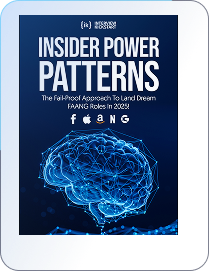Java is one of the most widely used programming languages to perform various programming and software development tasks. The Java collection framework essentially offers a structure to manipulate and store objects in the language.
Practicing Java Collections interview questions is important to ace technical interviews as a Java developer. To give you an idea of what to expect, we’ve compiled this list of Java collections interview questions that touch upon basic and advanced interview questions.
If you are preparing for a tech interview, check out our technical interview checklist, interview questions page, and salary negotiation e-book to get interview-ready!
Having trained over 11,000 software engineers, we know what it takes to crack the most challenging tech interviews. Our alums consistently land offers from FAANG+ companies. The highest ever offer received by an IK alum is a whopping $1.267 Million!
At IK, you get the unique opportunity to learn from expert instructors who are hiring managers and tech leads at Google, Facebook, Apple, and other top Silicon Valley tech companies.
Want to nail your next tech interview? Sign up for our FREE Webinar
Let’s go ahead and look at some commonly-asked collections interview questions in Java to help you prepare for your upcoming interview.
Here’s what we’ll cover in this article:

A collection in Java is essentially a group of individual objects combined and represented as a single unit. Here, we’ll look at some common Java collections interview questions and answers to help you prepare for your interview.
This is one of the most commonly-asked Java Collections interview questions.
The Collections framework in Java mainly comprises Classes and Interfaces used to manipulate objects. Frameworks provide a read-made architecture for sorting, searching, insertion, deletion, and manipulation.
The three main types of Collections in the Java framework include –
This is one of the most popular Java Collections interview questions asked at technical interviews.
The main types of interfaces in the Java Collections framework are –
The Properties file in Java helps keep updated values in the class by not having to recompile the Java class if a change in values is imputed.
This, again, is a commonly-asked Java collections interview question. The fundamental differences between a List and a Set in Java collections are –
If you’re a junior developer or fresher, it is important to know what type of Java collections interview questions to expect at your interview. To help you prepare and practice for your interview, we’ve compiled this list of the most popular Java collections interview questions for beginner programmers.
Experienced developers who appear for technical interviews at top firms are expected to know their way around various Java tools and frameworks, besides being able to solve tricky coding problems in core data structures and algorithms.
Let’s go ahead and look at some sample Java collections interview questions for experienced programmers.
Practicing these Java Collections interview questions will help you ace your next Java developer interview. You can also learn Collections Sort in Java here.
Q1. What topics should you prepare to answer Java Collections interview questions?
To effectively answer Java collections interview questions, you have to prepare the following topics – collections interfaces, map interfaces, tree interfaces, list interfaces, set interfaces, hash tables, hash maps, linked lists, iterators, and comparators.
Q2. Are Java Collections interview questions asked at FAANG+ interviews?
Yes. As a Java developer, you must know answers to Java collections interview questions at FAANG+ interviews. These questions are typically asked during the online assessment and on-site interviews.
Q3. What important Java frameworks should you know while preparing for technical interviews?
Some important Java frameworks that you should be aware of while giving technical interviews are – Hibernate, Spring, Angular, Struts, Grails, and Vaadin, among others.
Q4. What are some advantages of the Java collections framework?
Some notable advantages of the Java collections framework include – i) The API is consistent as it contains a predefined set of interfaces that have readily-defined functions; ii) It increases the [performance and speed of programs and applications; iii) Using the collections framework reduced programming load and effort.
Q5. What is the average Java developer salary in the US?
The average Java developer salary in the United States is $97,343 per year, according to glassdoor.com
Are you getting ready for your upcoming technical interview? Register for our technical interview webinarto get the best guidance and insight from highly experienced professionals on how to crack tough technical interviews and land high-paying offers from the biggest companies.
At Interview Kickstart, we’ve trained thousands of engineers to land lucrative offers at the biggest tech companies. Our instructors, who are FAANG hiring managers, know what it takes to nail tough tech interviews at top technology companies.
Register for our FREE webinar to learn more.
â€
Attend our free webinar to amp up your career and get the salary you deserve.

693+ FAANG insiders created a system so you don’t have to guess anymore!

100% Free — No credit card needed.

Time Zone:






Get your enrollment process started by registering for a Pre-enrollment Webinar with one of our Founders.

The 11 Neural “Power Patterns” For Solving Any FAANG Interview Problem 12.5X Faster Than 99.8% OF Applicants
The 2 “Magic Questions” That Reveal Whether You’re Good Enough To Receive A Lucrative Big Tech Offer
The “Instant Income Multiplier” That 2-3X’s Your Current Tech Salary

The 11 Neural “Power Patterns” For Solving Any FAANG Interview Problem 12.5X Faster Than 99.8% OF Applicants
The 2 “Magic Questions” That Reveal Whether You’re Good Enough To Receive A Lucrative Big Tech Offer
The “Instant Income Multiplier” That 2-3X’s Your Current Tech Salary
Just drop your name and email so we can send your Power Patterns PDF straight to your inbox. No Spam!
By sharing your contact details, you agree to our privacy policy.
Time Zone: Asia/Dhaka

We’ve sent the Power Patterns PDF to your inbox — it should arrive in the next 30 seconds.
📩 Can’t find it? Check your promotions or spam folder — and mark us as safe so you don’t miss future insights.
We’re hosting a private session where FAANG insiders walk through how they actually use these Power Patterns to crack interviews — and what sets top performers apart.
🎯 If you liked the PDF, you’ll love what we’re sharing next.
Time Zone:

